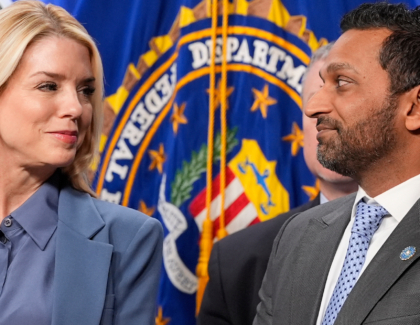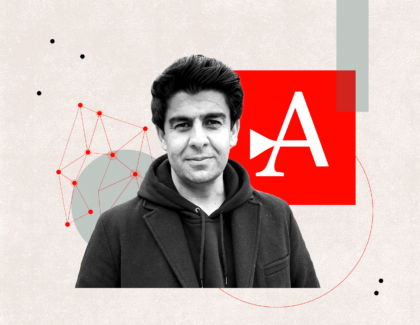Sign up for the daily CJR newsletter.
On Tuesday, The Washington Post published an op-ed reflecting on the Christchurch mosque shooter’s references to Turkey—a historic bridge between the West and the Middle East—in the screed he posted online shortly before the massacre. The op-ed argued that there is “absolutely no difference” between the far-right Christchurch terrorist and ISIS—both have said they want to claim Turkish land, including Istanbul, for Christianity and Islam, respectively. There was nothing immediately objectionable about the message. The messenger, by contrast, was controversial. The op-ed was authored by Recep Tayyip Erdoğan, Turkey’s authoritarian president.
The measured, conciliatory tone of Erdoğan’s op-ed stands in stark contrast to his behavior on the campaign trail ahead of local elections in Turkey later this month. Erdoğan—whose conservative party is projected to lose control of the country’s capital—has repeatedly politicized the Christchurch massacre in them-against-us terms. During at least eight of his rallies, Erdoğan has incited crowds by playing clips from the shooter’s video, including blurred images featuring live gunfire. He has accused the West of preparing the shooter’s writing and handing it to him, among other inflammatory remarks. On Monday, the day before his Post op-ed was published, Erdoğan talked about Gallipoli, a World War I military campaign that saw the Ottoman Empire repel troops from Australia and New Zealand. Each year, thousands of people from those countries visit Turkey to commemorate Anzac Day. This year, Erdoğan warned, anti-Muslim visitors would go home in coffins, “like their grandfathers.” The governments of Australia and New Zealand reacted furiously to the remarks. In his Post op-ed, Erdoğan was the picture of diplomatic innocence. “All Western leaders must learn from the courage, leadership, and sincerity of New Zealand’s prime minister, Jacinda Ardern,” he wrote.
ICYMI: The White House released a troubling video last week
Tuesday wasn’t the first time Erdoğan used an op-ed in a major newspaper to score political points. Last November, the Post gave him space to demand answers from Saudi Arabia over its killing of Jamal Khashoggi, a Post contributor, in an Istanbul consulate. Again, it was a fine message, but again, it was disingenuous: more journalists are in jail in Turkey than in any other country worldwide. It was a similar story in January, when The New York Times let Erdoğan argue in its pages that Donald Trump was right to announce a troop withdrawal from Syria; Turkey, Erdoğan wrote, would be more than capable of defeating ISIS and “other terrorist groups,” and of starting to reconstruct Syria, on its own. Erdoğan had, of course, recently promised an offensive against US-backed Kurdish militias in northern Syria.
Both the Post and the Times have explored Erdoğan’s true motives, and held him to account, many times on both the news and opinion sides of their papers—the Post editorial board, for instance, called out his hypocrisy three days after publishing his Khashoggi op-ed. The Post’s position on Erdoğan’s jailing of journalists is “no mystery,” and publishing him is “not an endorsement,” Fred Hiatt, editorial page editor at the Post, tells me in an email. “But we also believe our op-ed page should be a forum for a wide range of views,” he says. “We think that is the best way to serve our readers—who we believe are more than capable of evaluating for themselves what they read.”
The most troubling aspect of the Erdoğan op-eds, however, does not concern the boundaries of legitimate speech as much as their lack of context. The internet age has disaggregated newspapers and their opinion sections, spinning op-eds into standalone pieces as they circulate around the web. On those terms, Erdoğan’s Christchurch op-ed, for example, looks innocuous to all who lack prior knowledge of his latest electioneering tactics—a story, it’s safe to say, that has not penetrated the US news cycle.
The problem of disaggregation demands more thoughtful answers than “just don’t publish propagandistic op-eds.” The Post and others have worked to add context: using artificial intelligence, for example, to serve up links and opposing viewpoints. But the Erdoğan piece didn’t serve up a rebuttal, at least not to me. And links aren’t enough, in cases like this, to adequately contextualize a tyrant’s untrammeled message about a sensitive topic during a campaign season. Let him propagandize at his rallies, not in the pages of The Washington Post.
Below, more on Erdoğan and the opinion piece:
- Jailing journalists: The Committee to Protect Journalists offers fuller data on journalist imprisonment around the world in 2018. For the third year running, Turkey, China, and Egypt between them were responsible for more than half of the total. Also last year, Reporters Without Borders ranked Turkey 157th, out of 180 countries, in its World Press Freedom Index, citing Erdoğan’s “massive purge” of critics in the media. That purge has included a clampdown on Cumhuriyet, a rare independent newsroom in the country. Last year, Shawn Carrié and Asmaa Omar profiled that paper for CJR.
- A similar defense: In 2013, the Times’s public editor (remember them?) addressed reader concerns over the decision to give Vladimir Putin space to write in the paper. “From my point of view, The Times’s publishing the Putin Op-Ed was completely legitimate. Whether you agree with it or not, whether you approve of Mr. Putin or not, it could hardly be more newsworthy or interesting,” Margaret Sullivan, who now works for the Post, wrote.
- The ghostwriter: Last year, James Rose reflected for CJR on his career ghostwriting op-eds for politicians around the world, then placing them in major newspapers. “Because I was generally at some remove from my clients, I had to get up to speed on events related to them quickly. It was also vitally important to establish my clients’ voice,” he wrote.
Other notable stories:
- The Post’s Sullivan criticizes obsessive media coverage of the “B-boys”—Beto, Biden, and Bernie—at the expense of other Democratic candidates such as Elizabeth Warren and Amy Klobuchar. “In polling, in fundraising, in media ardor, they begin to seem inevitable. Invincible,” she writes. Joe Scarborough later compared another B-boy—Pete Buttigieg—to Barack Obama following the South Bend, Indiana, mayor’s buzzy appearance on Morning Joe.
- For CJR, Emily Bell writes, in response to the Christchurch mosque massacre, that journalism has “a panopticon problem: Just like the watchman in the center of Jeremy Bentham’s theoretical circular prison, we can now surveil a vast amount of human activity on the internet.” That ability, Bell writes, has led to urgent conversations about what journalists should and should not magnify. In the UK, a top counter-terrorism official waded into that debate yesterday, saying mainstream newspapers are helping radicalize far-right terrorists by spreading viral propaganda.
- The New Yorker’s Isaac Chotiner has an entertaining interview with Donna Brazile, the longtime Democratic operative who this week accepted a contributor gig at Fox News. “I want you to be clear that I have my marbles. This is Donna Brazile. You are not talking to a phantom,” Brazile says at one point. “Don’t call me and act as if you are somehow appalled that a black woman, or a woman, or a liberal progressive, would go, ‘Hell, yeah, I want to go in that den.’ I want to fight from inside and fight from the outside.”
- As Apple gears up to launch its paid news service, several potential partners, including the Times and the Post, have balked at its proposed terms: Apple reportedly wants to keep half the subscription revenue. That, apparently, has not put off The Wall Street Journal. According to the Times’s Mike Isaac, Apple and the Journal will announce their partnership on Monday. Apple is also launching a streaming video service to rival Netflix.
- Yesterday, the European Union fined Google $1.7 billion for anti-competitive behavior when advertising on third-party websites. The penalty was the third big fine EU antitrust regulators have imposed on Google in the last two years, costing the tech giant nearly $10 billion in total, the AP’s Kelvin Chan and Raf Casert report.
- Jared Schroeder writes for CJR that Devin Nunes—the pro-Trump congressman who attracted ridicule this week after suing Twitter and a pair of parody accounts for defamation—accidentally hit an important truth about social media companies. The fact Nunes has no chance of success “highlights the untenable level of double protection from liability that social media platforms have come to receive,” Schroeder argues.
- For Politico, Seamus Hughes writes that Pacer, a paywalled online repository of federal court records, is a “judicially approved scam.” According to Hughes, “The US federal court system rakes in about $145 million annually to grant access to records that, by all rights, belong to the public,” yet despite this windfall has “produced a website unworthy of the least talented of Silicon Valley garage programmers.” Earlier this month, CJR’s Amanda Darrach profiled Hughes and the terrorism research center he helps lead.
- And there was more bad media-business news yesterday. The Penny Hoarder, a personal finance publication based in St. Petersburg, Florida, laid off 45 staffers, slashing its newsroom roughly by half. And the Reading Eagle, a local newspaper in Pennsylvania, filed for bankruptcy. Peter Barbey, the Eagle CEO who shut down The Village Voice last year, belongs to one of the richest families in America.
ICYMI: WSJ reporter explains why he was fired
Has America ever needed a media defender more than now? Help us by joining CJR today.







